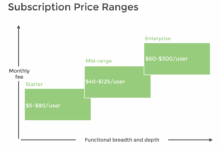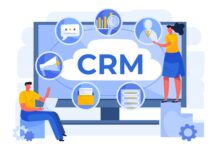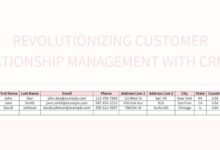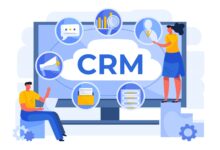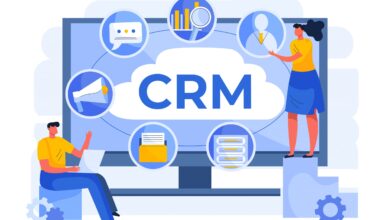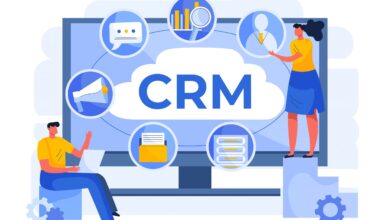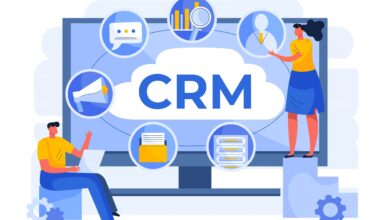CRM Software Reviews: Making Informed Decisions With Expert Insights
CRM software reviews play a crucial role in shaping business decisions, offering valuable insights for optimizing customer relationships. Dive into the world of CRM software reviews to discover how businesses can leverage this information to their advantage.
Explore key factors, types of CRM software, popular providers, and more to gain a comprehensive understanding of the impact of CRM software reviews on business success.
Overview of CRM Software Reviews
CRM software reviews play a crucial role in helping businesses make informed decisions when selecting a customer relationship management (CRM) system. These reviews provide valuable insights from real users and experts, helping potential buyers understand the features, benefits, and drawbacks of different CRM software options.
Importance of CRM Software Reviews
When reading CRM software reviews, there are several key factors to consider to ensure that you are making the right choice for your business:
- Customer Feedback: Pay attention to the feedback from current users to understand their experiences and satisfaction levels with the software.
- Features and Functionality: Evaluate the features and functionalities offered by the CRM software to ensure that it aligns with your business needs and goals.
- Pricing and Scalability: Consider the pricing plans and scalability options to determine if the software is affordable and can grow with your business.
- Integration Capabilities: Check if the CRM software can integrate with your existing tools and systems to streamline operations and data management.
How CRM Software Reviews Improve Customer Relationships
By leveraging CRM software reviews, businesses can gain valuable insights into how different CRM solutions can help them build and maintain strong customer relationships. These reviews can help businesses:
- Identify the Best Fit: By comparing reviews and ratings, businesses can identify the CRM software that best suits their unique requirements and objectives.
- Enhance Customer Experience: Implementing a CRM system based on positive reviews can lead to improved customer service, personalized interactions, and enhanced customer satisfaction.
- Optimize Business Processes: CRM software reviews can highlight the efficiency and effectiveness of different systems, enabling businesses to streamline their processes and workflows for better customer relationship management.
Types of CRM Software
When it comes to CRM software, there are several types available in the market to cater to different business needs. Let’s take a closer look at the various types of CRM software and their features.
1. Operational CRM
Operational CRM focuses on streamlining business processes such as sales automation, marketing automation, and service automation. It helps in improving customer interactions and increasing efficiency by providing a 360-degree view of customer data.
2. Analytical CRM
Analytical CRM is centered around analyzing customer data to improve decision-making processes. It involves data mining, trend analysis, and predictive modeling to gain insights into customer behavior and preferences.
3. Collaborative CRM
Collaborative CRM emphasizes communication and collaboration between different departments within an organization to enhance the overall customer experience. It helps in sharing customer information across teams and providing a unified view of customer interactions.
4. Strategic CRM
Strategic CRM focuses on long-term customer relationships and aims to maximize customer lifetime value. It involves personalized marketing strategies, loyalty programs, and customer retention initiatives to build strong relationships with customers.
Cloud-based CRM vs. On-premise CRM
Cloud-based CRM software is hosted on remote servers and accessed through the internet, offering scalability, flexibility, and cost-effectiveness. On the other hand, on-premise CRM software is installed and maintained on local servers, providing greater control over data security and customization options.
Overall, both cloud-based CRM and on-premise CRM have their own set of advantages and disadvantages, and the choice between the two depends on the specific needs and preferences of the business.
Popular CRM Software Providers
When it comes to CRM software providers, there are several top players in the market that have gained popularity based on reviews and ratings. Let’s take a look at some of the leading CRM software providers and their unique selling points.
Salesforce
Salesforce is one of the most well-known CRM software providers in the industry. Its cloud-based platform offers a wide range of features for sales, marketing, customer service, and analytics. One of the key selling points of Salesforce is its scalability, making it suitable for businesses of all sizes. For example, a large e-commerce company saw a significant increase in sales and customer satisfaction after implementing Salesforce CRM to streamline their customer interactions and sales processes.
HubSpot
HubSpot is another popular CRM software provider known for its user-friendly interface and comprehensive suite of tools for marketing, sales, and customer service. One of the unique selling points of HubSpot is its inbound marketing approach, which helps businesses attract, engage, and delight customers. A small business owner saw a 30% increase in leads and conversions after using HubSpot CRM to automate marketing campaigns and track customer interactions.
Zoho CRM
Zoho CRM is a cost-effective CRM software provider that offers a range of features for sales, marketing, and customer support. Its customization options and integration capabilities make it a popular choice for small and medium-sized businesses. A startup company experienced a 20% growth in revenue after implementing Zoho CRM to manage their sales pipeline and track customer data more efficiently.
Microsoft Dynamics 365
Microsoft Dynamics 365 is a versatile CRM software provider that integrates seamlessly with other Microsoft products like Office 365 and Power BI. Its AI-driven insights and predictive analytics help businesses make data-driven decisions and improve customer relationships. A multinational corporation saw a 15% increase in customer retention rates after deploying Microsoft Dynamics 365 to centralize customer data and enhance collaboration among sales teams.
Factors to Consider in CRM Software Reviews
When evaluating CRM software options, there are several key factors to consider to ensure you choose the best solution for your business needs.
Design a Comparison Table
Creating a comparison table can help you visually compare different CRM software options based on important factors such as pricing, features, integrations, and customer support. This will allow you to easily see which platform offers the most value for your specific requirements.
Significance of User Reviews and Ratings
User reviews and ratings play a crucial role in evaluating CRM software as they provide real-world feedback from actual users. Pay attention to both positive and negative reviews to get a comprehensive understanding of the software’s strengths and weaknesses.
Tips on Spotting Fake Reviews
To avoid falling for fake reviews, look for detailed and specific feedback, check the credibility of the reviewer, and compare reviews across multiple platforms. By doing so, you can make informed decisions based on genuine user experiences.
Top 5 CRM Software Platforms
Based on expert reviews, the top 5 CRM software platforms are Salesforce, HubSpot CRM, Zoho CRM, Pipedrive, and Freshworks CRM.
Analyzing Scalability of CRM Software
To analyze the scalability of CRM software for different business sizes, consider factors such as the ability to handle growing data volumes, customization options, and the flexibility to adapt to changing business needs. Ensure that the software can grow with your business without compromising performance.
Importance of Mobile Accessibility and Customization
Mobile accessibility and customization options are crucial criteria when selecting CRM software. Ensure that the software is mobile-friendly to facilitate remote work and on-the-go access. Customization features allow you to tailor the CRM system to suit your unique business processes and requirements.
Benefits of Using CRM Software
CRM software offers a wide range of benefits for businesses of all sizes, helping them effectively manage customer relationships and drive growth.
Advantages of Using CRM Software
- Centralized Data: CRM software allows businesses to store all customer information in one place, making it easily accessible to employees across different departments.
- Improved Customer Relationships: By tracking interactions and preferences, businesses can personalize communication and provide better service to customers.
- Enhanced Sales and Marketing: CRM software can streamline sales and marketing processes, helping businesses identify leads, track conversions, and analyze campaign performance.
Success Stories of Companies Leveraging CRM Software
Companies like Salesforce and Zoho have seen significant growth and improved customer retention rates after implementing CRM software into their operations.
Key Features in CRM Software
- Lead Management: Efficiently track and manage leads through the sales pipeline.
- Customer Segmentation: Divide customers into groups based on behavior or demographics for targeted marketing.
- Integration Capabilities: Seamless integration with other business tools like email marketing platforms and accounting software.
Data Security Measures in CRM Software
CRM software should have robust security measures in place to protect sensitive customer data, including encryption, access controls, and regular security audits.
Improving Customer Retention and Loyalty with CRM Software
By leveraging customer data and insights, businesses can tailor their offerings to meet customer needs, increasing loyalty and retention rates.
Tips for Integrating CRM Software into Business Operations
- Provide adequate training to employees to ensure they understand how to use the CRM software effectively.
- Customize the software to align with your business processes and goals for maximum efficiency.
- Regularly update and maintain the CRM software to ensure optimal performance and data accuracy.
Comparison of CRM Software Options
There are various CRM software options available in the market, such as HubSpot, Microsoft Dynamics 365, and Pipedrive, each offering unique features suited for different industries and business needs.
Challenges in Choosing CRM Software
When it comes to selecting CRM software for a business, there are several challenges that organizations may face. These challenges can range from understanding complex features to aligning the software with the specific needs of the business. Overcoming these hurdles is crucial to making the right choice for seamless integration and effective utilization.
Compatibility with Existing Systems
One common challenge is ensuring that the chosen CRM software is compatible with the existing systems and technologies used by the business. Integration issues can arise if the software does not sync well with other tools and platforms already in place.
Lack of User Adoption
Another challenge is the lack of user adoption within the organization. If the CRM software is too complex or difficult to use, employees may resist incorporating it into their daily workflows. This can hinder the effectiveness of the software and lead to underutilization.
Cost Considerations
Cost is always a significant factor when choosing CRM software. Businesses must weigh the upfront costs, ongoing fees, and potential return on investment. Failing to consider the long-term financial implications can result in budget constraints and limited scalability.
Data Security and Compliance
Ensuring data security and compliance with regulations is a critical challenge in selecting CRM software. Businesses must prioritize solutions that offer robust security measures to protect sensitive customer information and adhere to industry standards.
Lack of Customization Options
Some CRM software may lack the flexibility to be customized according to the specific requirements of a business. Limited customization options can restrict the software’s ability to adapt to evolving needs and processes.
Integration Capabilities of CRM Software
CRM software integration with other tools and platforms is essential for businesses to streamline operations and enhance customer relationships. By seamlessly connecting CRM software with various applications, organizations can optimize their processes and improve overall efficiency.
Popular Integrations to Enhance CRM Software Functionality
- Integration with Email Marketing Platforms: CRM software can be integrated with email marketing tools like MailChimp or Constant Contact to send personalized and targeted email campaigns to customers.
- Integration with Social Media Platforms: Connecting CRM software with social media platforms such as Facebook or Twitter enables businesses to track customer interactions on social media and gather valuable insights for better engagement.
- Integration with Help Desk Software: CRM software integration with help desk tools like Zendesk or Freshdesk allows for seamless management of customer support tickets and enhances customer service experiences.
Setting up Integrations between CRM Software and Third-Party Applications
Setting up integrations between CRM software and third-party applications typically involves configuring APIs or using integration platforms like Zapier. Businesses need to ensure that data mapping is accurate and that the integration process is secure to maintain data integrity and confidentiality.
Benefits of Integrating CRM Software with Marketing Automation Tools
- Improved Lead Management: Integrating CRM software with marketing automation tools helps in tracking leads throughout the sales funnel and automating lead nurturing processes.
- Personalized Marketing Campaigns: By combining CRM data with marketing automation, businesses can create highly targeted and personalized marketing campaigns based on customer preferences and behaviors.
- Enhanced Reporting and Analytics: Integration enables better tracking of campaign performance and customer interactions, providing valuable insights for refining marketing strategies.
Importance of Data Synchronicity in CRM Software Integrations
Data synchronicity is crucial when integrating CRM software with other business systems to ensure that information is consistent across all platforms. Real-time data synchronization prevents data discrepancies and enables employees to access up-to-date customer information for informed decision-making.
Customization Options in CRM Software
Customization options in CRM software play a crucial role in meeting specific business needs. Tailoring CRM solutions to fit the unique requirements of a business can lead to increased user adoption, improved customer satisfaction, and enhanced data accuracy. Let’s delve into the importance of customization options in CRM software and explore some examples of customizable features in leading CRM software solutions like Salesforce, HubSpot, and Zoho CRM.
Customizable Features in Leading CRM Software
- Salesforce: Salesforce offers extensive customization options, allowing users to create custom fields, workflows, reports, and dashboards tailored to their specific needs. Users can also integrate third-party apps to further customize their CRM experience.
- HubSpot: HubSpot CRM provides users with the flexibility to customize deal stages, properties, and pipelines to align with their unique sales processes. Users can also create custom email templates and reports for personalized communication and insights.
- Zoho CRM: Zoho CRM offers a wide range of customization options, including custom modules, fields, layouts, and functions. Users can personalize their CRM interface, automate workflows, and integrate with other Zoho applications for a seamless user experience.
Comparison of Customization Capabilities
| CRM Software | Customization Strengths |
|---|---|
| Salesforce | Extensive customization options for fields, workflows, and reports |
| HubSpot | Flexibility in customizing deal stages, properties, and pipelines |
| Zoho CRM | Wide range of customization features, including custom modules and layouts |
User Experience and Interface Design
When it comes to CRM software, user experience and interface design play a crucial role in ensuring the success of the system within an organization. A well-designed interface can greatly impact user adoption and productivity, making it easier for employees to navigate the system and access the information they need to effectively manage customer relationships.
Intuitive Interfaces and User Adoption
An intuitive interface is essential for ensuring smooth user adoption of CRM software. When users can easily navigate the system, input data, and access customer information without confusion, they are more likely to embrace the software and maximize its benefits. A cluttered or complex interface can lead to frustration and resistance from users, ultimately hindering the success of the CRM implementation.
Best Practices for Optimizing User Experience
- Simplify navigation: Ensure that the CRM software has a clear and logical menu structure, making it easy for users to find the features and functions they need.
- Customization options: Provide users with the ability to customize their interface based on their preferences and job roles, improving overall usability.
- Responsive design: Opt for CRM software that offers responsive design, allowing users to access the system from various devices without sacrificing usability.
- User training: Invest in comprehensive user training to familiarize employees with the CRM software interface and features, reducing the learning curve and increasing productivity.
Security and Data Privacy in CRM Software
Ensuring robust security measures and prioritizing data privacy are paramount in CRM software to safeguard sensitive customer information.
Importance of Security Measures
- Implementing encryption techniques to protect customer data from unauthorized access.
- Utilizing secure authentication methods to prevent data breaches.
- Maintaining user permissions and access controls to regulate information accessibility.
Data Breaches and Prevention
- Implications of data breaches in CRM systems can lead to loss of customer trust and legal consequences.
- Preventive measures include regular security audits, vulnerability assessments, and employee training.
Common Security Measures
- Firewalls and antivirus software to detect and block malicious activities.
- Multi-factor authentication for enhanced login security.
- Secure Socket Layer (SSL) encryption to protect data transmitted between users and servers.
Encryption Techniques
- Utilization of Advanced Encryption Standard (AES) to encode and decode sensitive data.
- Hashing algorithms to securely store passwords and prevent unauthorized access.
Authentication Methods
- Biometric authentication such as fingerprint or facial recognition for secure access.
- Token-based authentication for generating unique access codes for users.
User Permissions and Access Controls
- Role-based access controls to assign specific privileges based on user roles.
- Restricting access to certain data based on user clearance levels.
Security Audits and Assessments
- Regular evaluations to identify vulnerabilities and implement necessary security patches.
- External audits by cybersecurity experts to ensure compliance with industry standards.
Legal Regulations and Compliance Standards
- Adherence to General Data Protection Regulation (GDPR) guidelines for data protection.
- Compliance with industry-specific regulations to maintain data privacy and security.
Training and Support for CRM Software
Training and support are crucial components of successful CRM software implementation. Vendors offer various programs to help users get the most out of their CRM systems. Effective training and support can enhance user adoption and maximize ROI.
Key Features of CRM Software Training Programs
- Interactive online courses
- On-site training sessions
- Video tutorials and guides
- Certification programs
Preparing for CRM Software Implementation
- Conduct a thorough data audit
- Map out your current processes
- Customize the CRM software to fit your specific needs
- Train key users before rolling out to the entire team
Importance of User Adoption and Effective Training
User adoption is key to CRM software success. Strategies for effective training include:
- Hands-on workshops
- Regular refresher sessions
- Utilizing gamification
- Encouraging feedback and communication
Types of CRM Software Support Options
- Online knowledge bases and resources
- 24/7 help centers and chat support
- Dedicated account managers for personalized assistance
Common Challenges during CRM Software Implementation and Solutions
| Challenge | Solution |
|---|---|
| Data migration issues | Thoroughly test data migration processes before implementation |
| Lack of user buy-in | Communicate benefits and provide ongoing training |
| Poor customization | Work closely with vendors to tailor the CRM software |
Utilize ongoing support services to address user concerns promptly and optimize CRM software utilization for better ROI.
Trends in CRM Software Development
In the ever-evolving landscape of CRM software, it’s crucial to stay updated on the latest trends that are shaping the industry. From AI integration to automation and predictive analytics, these developments are revolutionizing how businesses manage their customer relationships.
AI Integration in CRM Software
AI integration in CRM software is a game-changer, enabling businesses to analyze vast amounts of data to gain valuable insights into customer behavior and preferences. By leveraging AI-powered tools, companies can personalize their interactions with customers, predict future trends, and streamline their sales and marketing processes.
Automation in CRM Software
Automation is another key trend in CRM software development, allowing businesses to automate repetitive tasks, such as data entry, lead scoring, and email marketing campaigns. By automating these processes, companies can save time, reduce errors, and improve efficiency, ultimately leading to better customer experiences and increased productivity.
Predictive Analytics in CRM Software
Predictive analytics is transforming CRM software by enabling businesses to forecast customer behavior, identify potential sales opportunities, and mitigate risks. By analyzing historical data and trends, companies can make informed decisions and tailor their strategies to meet the evolving needs of their customers.
Future Developments in CRM Software
Looking ahead, the future of CRM software development is promising, with advancements in areas such as augmented reality (AR), virtual reality (VR), and blockchain technology expected to revolutionize customer relationship management. These innovations have the potential to enhance customer engagement, improve data security, and drive business growth in unprecedented ways.
Case Studies and Use Cases
In this section, we will delve into case studies and real-world use cases that highlight the successful implementation of CRM software across various industries, analyzing its impact on business growth and customer satisfaction.
Healthcare Industry
CRM software has revolutionized the healthcare industry by enabling hospitals and clinics to streamline patient information, improve communication between healthcare providers, and enhance patient care. By centralizing patient data, healthcare facilities can provide personalized treatment plans and ensure efficient management of appointments and follow-ups.
- Case Study 1: XYZ Hospital implemented CRM software to improve patient engagement and satisfaction, resulting in a 20% increase in patient retention rates.
- Case Study 2: ABC Clinic utilized CRM software to automate appointment scheduling and reduce waiting times, leading to a 30% improvement in patient satisfaction scores.
Retail Industry
CRM software has become a game-changer for retail businesses, allowing them to track customer preferences, analyze buying patterns, and deliver targeted marketing campaigns. By leveraging CRM data, retailers can create personalized shopping experiences and foster customer loyalty.
- Case Study 1: XYZ Fashion Store implemented CRM software to segment customers based on purchase history and preferences, resulting in a 15% increase in sales conversion rates.
- Case Study 2: ABC Electronics retailer used CRM software to launch a loyalty program based on customer data insights, leading to a 25% growth in repeat purchases.
Manufacturing Industry
CRM software has played a crucial role in the manufacturing sector by optimizing supply chain management, enhancing customer relationships, and improving sales forecasting. Manufacturers can use CRM solutions to track orders, manage inventory, and collaborate with suppliers effectively.
- Case Study 1: XYZ Manufacturing Company integrated CRM software to streamline sales processes and improve lead conversion rates, resulting in a 20% increase in revenue within the first year.
- Case Study 2: ABC Automotive supplier implemented CRM software to track customer interactions and feedback, leading to a 15% reduction in customer churn rate.
Tips for Writing Effective CRM Software Reviews
When writing a review of CRM software, it is essential to structure your thoughts in a clear and organized manner to provide valuable insights to readers. Here are some tips to help you craft effective CRM software reviews:
Structuring the Review
To create a comprehensive CRM software review, consider including the following sections:
- Introduction: Start with a brief overview of the CRM software and its key features.
- Features Overview: Detail the functionalities and capabilities of the CRM software.
- User Experience: Share insights on the ease of use, interface design, and overall user experience.
- Pros and Cons: Highlight the strengths and weaknesses of the CRM software based on your experience.
- Final Thoughts: Summarize your overall impression of the CRM software and provide recommendations.
Using Examples and Anecdotes
Support your points about the CRM software with specific examples or anecdotes to illustrate your experience and provide context for your review.
Comparing with Competitors
It can be helpful to compare the CRM software with its competitors to give readers a better perspective on its unique strengths and weaknesses.
Consistent Rating Scale
Use a consistent rating scale or criteria to evaluate different CRM software products, ensuring fairness and comparability across reviews.
Disclosing Biases and Conflicts of Interest
Be transparent about any potential biases or conflicts of interest that may influence your review, maintaining credibility and trustworthiness.
Updating Reviews
Regularly update your review if there are major changes or updates to the CRM software, ensuring that readers have access to the most current information.
Final Thoughts
In conclusion, CRM software reviews serve as a compass guiding businesses towards effective customer relationship management strategies. By harnessing the power of these reviews, organizations can unlock new opportunities for growth and success in today’s competitive landscape.

